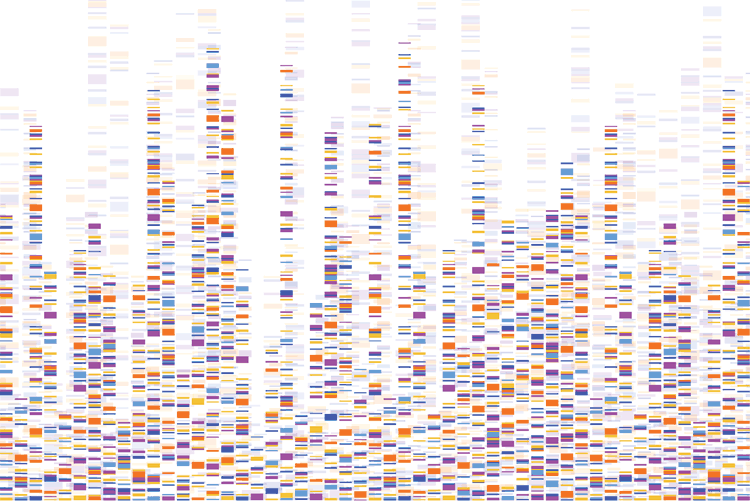Educating Consumers About Genetic Testing
High Rates of DTC Genetic Test False Positives Bring More Consumers In for Consultations
By Megan Headley
Direct-to-consumer (DTC) genetic testing has come a long way in popularity, but it still has a long way to go in accuracy. As of February 2019, more than 26 million consumers had tried DTC genetic testing to learn more about their ancestry or uncover genetic mysteries. Data from MIT Technology Review found the total of people trying recreational genetic testing more than doubled from 2017 to 2018 alone, up sharply from only 330,000 testers in 2012.
However, a 2018 study published in Genetics in Medicine by clinical testing lab Ambry Genetics found these DTC genetic tests had a 40% false positive rate. In addition, 17% of variants in raw data from DTC tests were misinterpreted as high risk. “That was really compelling to us and a little bit scary,” says Emily Dalton, MS, CGC, director of genetic specialists at Ambry Genetics.
The company found itself fielding confirmatory tests from healthcare providers who had met with alarmed patients. “Some of our clients would get patients in to see them who had a positive result from DTC testing and came to a genetic conference saying, ‘What does this mean? What do I do?’” Dalton shares.
“Both false-positive results and misclassification of variants can result in significant implications for an individual, including unnecessary stress, medical procedures, and testing of family members,” noted Brigette Tippin Davis, PhD, FACMG, Ambry’s senior vice president of research & development, in a news release.
The National Society of Genetic Counselors (NSGC) agrees. When 23andMe received FDA approval in 2018 to offer a DTC test report on BRCA, with insight on the potential for specific breast cancer gene mutations, NSGC President Erica Ramos, MS, CGC, commented in a news release, “Although this test may help to identify people who have a previously undetected BRCA mutation, there are several limitations and the results may be confusing or misleading without appropriate education.”
The 23andMe test doesn’t indicate whether a flagged BRCA mutation is a harmful mutation that actually increases a person’s risk for breast cancer; on the other hand, the test doesn’t flag countless other mutations that do indicate a heightened breast cancer risk.

Ramos further cautioned that anyone concerned about his or her individualized risk should consult with a genetic counselor to discuss the test results. “Genetic counselors can help them be prepared for what the results may tell them, identify other clinical tests that may be needed based on their history and understand how those results could affect them and their relatives,” she stated in the release.
Companies like Ambry Genetics have vast insight into the rampant errors in DTC tests, but they typically can’t do much to educate consumers. As a result, Ambry partnered with My Gene Counsel, a digital health company that provides personalized genetic testing reports. The goal of the partnership is to confirm DTC genetic test results with medical-grade testing. The partnership will also provide proper genetic counseling for consumers determined to be at high risk for hereditary cancers.
“We wanted to partner with a company like My Gene Counsel to take on the action of seeing the patients and explaining those results while we can provide the confirmatory genetic counseling to those who might need it,” Dalton explains.
High DTC false-positive rates aren’t quelling consumer demand for these tests, Dalton says. Plus, as she notes, DTC genetic testing does offer certain benefits. “One of the positive things about DTC testing is that it’s increasing that awareness about genetics,” Dalton points out. “When I was in clinic 10 years ago, people were really hesitant around genetic testing.”
The next step is to broaden that awareness to include the limitations of recreational testing and the availability of more reliable options.
Megan Headley is a freelance writer and owner of ClearStory Publications. Headley can be reached at megan@clearstorypublications.com.
